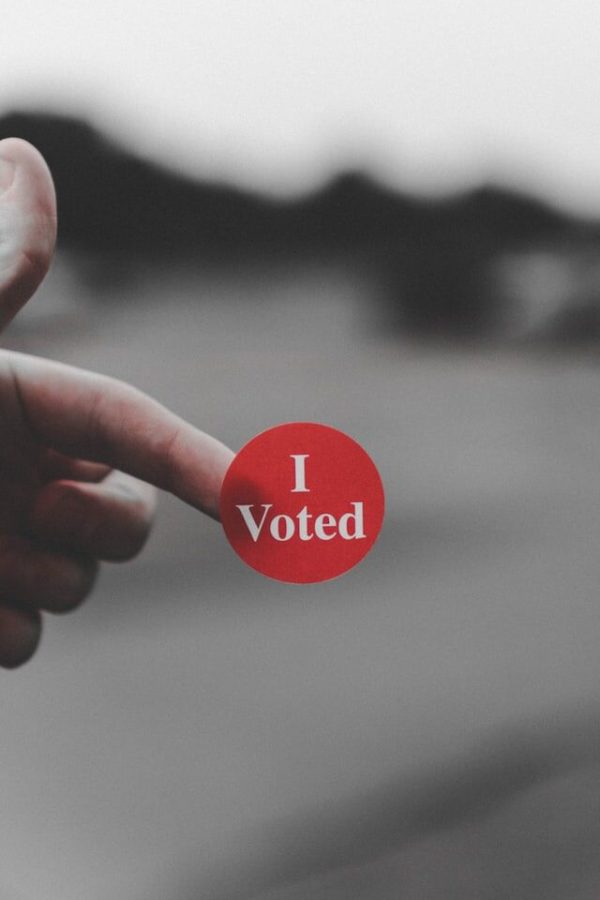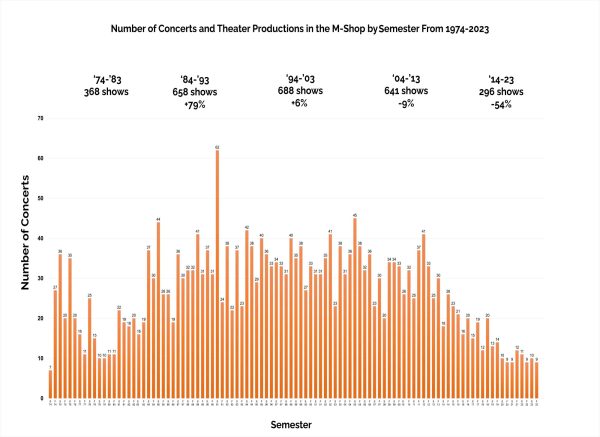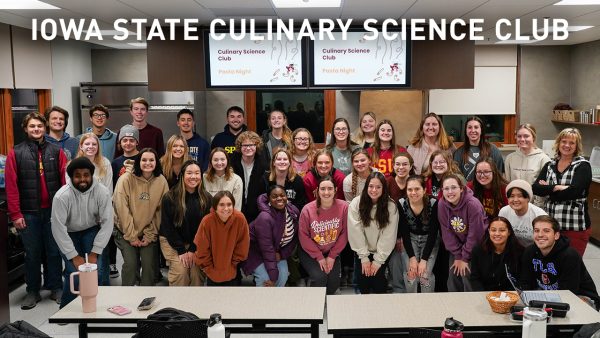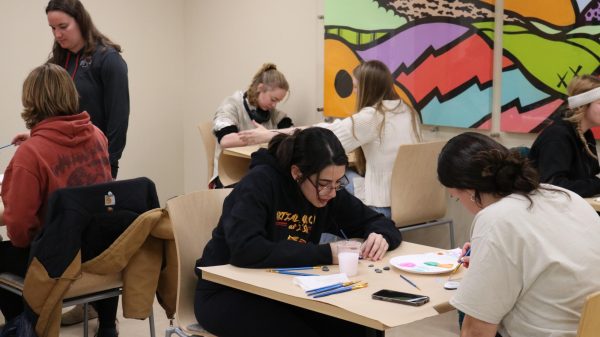How and why students plan to vote
October 21, 2020
The 2020 election is less than two weeks away. Whether you feel nervous or excited, taking action through voting is one of the most important ways to use your voice this election season.
Voting via absentee ballot has increased, mainly due to COVID-19 precautions and the risks that come with voting in person. In fact, 81.7 million absentee ballots have been distributed or requested, exceeding past election seasons, according to the New York Times.
“It was a lot nicer to vote absentee because there’s all those smaller races you don’t really know about until you get the ballot,” said Sehba Faheem, president of Iowa State College Democrats and senior majoring in biological systems engineering. “That’s one of the reasons why I wanted to vote absentee, so then I can have that time to research who was on my ballot.”
Faheem is also an Iowa State Student Government senator representing Schilletter and University Village Apartments and serves on the Civic Engagement Committee.
There’s an urban myth that absentee voting is reserved for those who aren’t willing and able to vote in-person, but this simply isn’t true. The presence of COVID-19 and wanting to protect oneself presents the opportunity to request an absentee ballot, no matter your age, ability or location.
“I already submitted my absentee ballot, and my main reason for choosing to do that was I wasn’t sure where I was going to be for the election,” said Kara Dieke, a junior studying economics. “I didn’t know if we were going to be in Ames or if we were going to be at home. I just preferred the idea of voting by mail where I didn’t have to be in contact with anybody.”
Dieke is the treasurer for Vote Everywhere!, a student organization that helps to inform students on how they can vote, where they can vote and the importance of voting in every election, not just every four years during presidential elections.
“I think it’s really, really important that we make our elections accessible for everyone, and then make sure that the way we’re structuring our elections is actively encouraging people to want to vote,” Faheem said.
According to PBS, 37 percent of Generation Z and millennials will make up the voting population this election. Raised in a post-9/11 era, younger voters have experienced numerous other events that may influence the way they vote.
An increase in racial injustice, marginalized groups receiving fewer rights than the more privileged population and slowly watching the world they grew up in come crumbling down in terms of the environment, young voters have the chance to swing states.
“I think racial justice needs to be attended to,” Faheem said. “I think over the last four years especially, we’ve seen an increase in violence that we haven’t seen in many, many years. And it’s startling and scary for me and other people of color. I think to be able to solve that as well, we need to have a bigger racial reckoning in this country.”
As a biological systems engineering major, Faheem said climate change is an important issue she will be advocating for a change for with her vote.
“I think the environment is a lot more expansive than climate change, but climate change is part of it,” Faheem said. “There’s a lot of different sections that play into it, and I think we need comprehensive, strong policy on the environment in order to make a difference, and that’s something that I’ll be voting for, is a change for sustainability.”
LGBTQIA+ and women’s rights have been threatened over the past four years while President Donald Trump has been in office. Access to safe and affordable abortions has dwindled. Repealing the rights granted to women thanks to Roe v. Wade could hurt Trump’s chances of reelection, according to AP News.
Meanwhile, same-sex marriage legislation risks being repealed if Trump remains in office.
“I’m really passionate about LGBTQIA+ rights and women’s rights and protecting the right to abortion here in Iowa,” Dieke said.
Within her role on the Civic Engagement Committee, Faheem has helped to develop and distribute voter registration stations across campus, hoping to raise awareness and inform students on the different voting methods available to them and how to register to vote.
Student Government developed a website, vote.iastate.edu, to answer questions that may come up when students are starting the voting process. From categories such as where to vote, how to vote and early voting information, the website is a one-stop, quick and easy way to ensure students are up to date in terms of voting information.
“We have the right to vote, and not everyone around the world gets to have that right, so I feel like people should take advantage of it and become as informed as possible to influence the decisions of the government,” Dieke said.
Individuals are raising awareness for voting this election season. According to Business Insider, 138 million people voted in 2016. Although this may seem like a lot, it is only 58.1 percent of eligible voters.
“Voter turnout has previously been low because of systematic barriers toward certain populations, like people of color, women and people with disabilities,” said Mariana Gonzalez, vice speaker of Student Government and junior majoring in political science and public relations.
Voter awareness has been prevalent on social media platforms, with sites such as Instagram and Facebook displaying voter registration information through banners at the top of users’ screens upon opening the app.
On Instagram, tabs and banners display voting information. Once that tab is activated, Instagram has already found your state and gives individuals the option to register to vote, find their drop-off location and check state requirements.
Social media platforms are using this election season to educate individuals on proper voting techniques and answering frequently asked questions.
Celebrities are also using their voices on social media platforms to urge their followers to vote. According to Forbes, YouTube phenomenon David Dobrik did a Tesla giveaway, where he promised to give a Tesla to five of his followers if they shared his post, tagged a friend and made sure they were registered to vote. After proof was shown, these individuals were entered into the giveaway.
A follower of Dobrik posted on TikTok and said his influence on millennials and Generation Z could increase voter turnout for these age groups. And Dobrik isn’t the only celebrity making sure his followers are registered to vote. Celebrities such as YouTube personality Liza Koshy and supermodel Gigi Hadid, among others, are using their platform to encourage followers to make sure they are registered to vote.
This election season has proven that technology and social media are not only giving users the resources they need but also giving people voices.
“People from all walks of life have taken a closer look at our government, the people we put in place to represent us and the issues that affect our daily life,” Gonzalez said on why she believes individuals are deciding to vote this year.
With an increase in voter turnout, Gonzalez explained this election is a turning point for many. With that, it is very important for citizens to have their voices heard through their vote.
“It’s very important that everyone goes out and does their civic duty,” Gonzalez said.
Early in-person voting is taking place at the Scheman Building from 9 a.m. until 4 p.m. Oct. 21. In order to vote, a person must bring a valid driver’s license and proof of residence in the Ames area. Whether it be a copy of your utility bill, renters insurance or a screenshot of your address from AccessPlus, it’s better to have proof of residence just in case.
Early in-person voting is also taking place from 9 a.m. until 4 p.m. Oct. 24 and 31 at Ames Public Library in Downtown Ames.
Members of both ISU College Republicans and Democrats were asked for comments. No College Republican representatives made comments in time for publication.

















